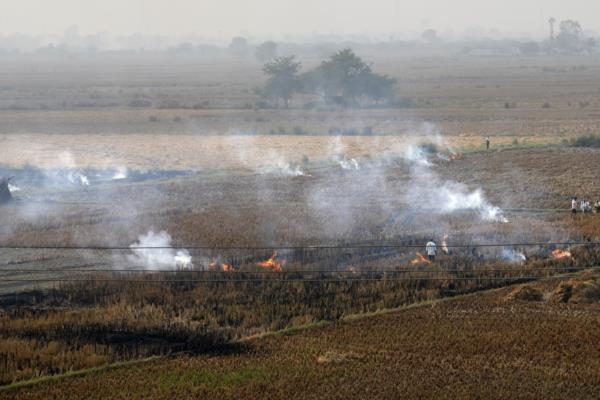
Authorities in India's capital, New Delhi, have implemented strict measures in response to a significant spike in air pollution levels. The city, home to over 33 million residents, woke up to a thick blanket of toxic smog, prompting concerns about public health and safety.
The air quality index reached its worst level this season, classified as severe by SAFAR, the country's main environmental agency. The hazardous haze shrouded iconic landmarks and high-rise buildings, causing visibility issues and disruptions to air travel.
Pollution levels in some areas of the city exceeded 50 times the World Health Organization's recommended safe limit, posing serious health risks to the population. The deteriorating air quality is attributed to various factors, including crop residue burning by farmers, vehicle emissions, industrial activities, and coal combustion for electricity generation.
To address the crisis, authorities have activated stage 4 of a graded response action plan, enforcing stringent restrictions. Measures include the closure of schools, suspension of construction activities, and a ban on non-essential trucks entering the city. Online classes have been mandated for most students, while older diesel vehicles have been prohibited from operating within city limits.

















Residents, particularly vulnerable groups such as children and the elderly, are advised to limit outdoor exposure due to the health hazards posed by the polluted air. The situation was exacerbated by recent crop burning in neighboring states, further contributing to the noxious smog enveloping the region.
The public outcry on social media reflects the severity of the situation, with many expressing concerns about the long-term health implications of prolonged exposure to such high levels of pollution. Calls for sustainable solutions to address the root causes of pollution have intensified, emphasizing the need for comprehensive strategies to combat air quality issues in the region.
While authorities have previously implemented temporary measures to mitigate air pollution, critics argue that a more holistic approach is required to achieve lasting improvements in Delhi's air quality. As the city grapples with the ongoing public health crisis, efforts to curb pollution and protect the well-being of its residents remain a top priority.







